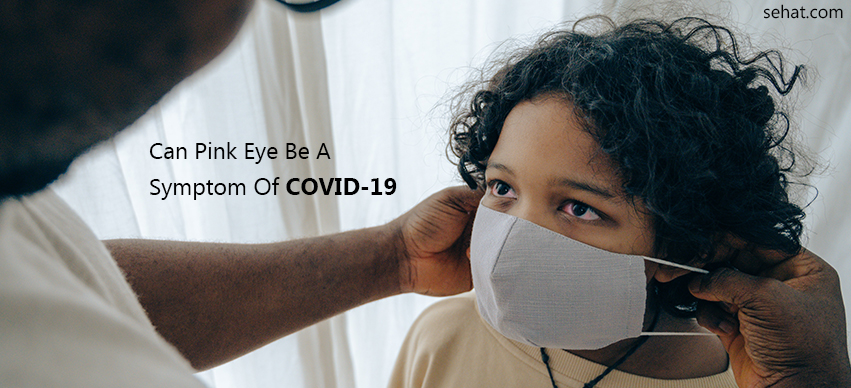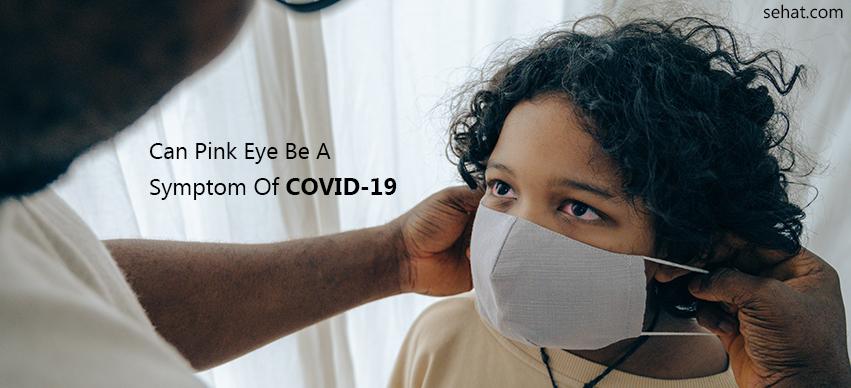Nanoparticle Therapy – An Emerging Cancer Treatment
5 Min Read


A Coronavirus is a virus that causes respiratory infections that can range from the common cold to more severe respiratory illnesses. A new strain of coronavirus called severe acute respiratory syndrome coronavirus 2 (SARS-CoV-2) has caused the pandemic of respiratory tract infection called Covid-19 (coronavirus disease of 2019).
Coronavirus is found to be spherical and contains RNA as the genetic material. This virus is transmitted through the air by coughing and sneezing, close contact with an infected patient, touching an object or surface contaminated with the virus, and then touching the nose, mouth, or eyes, and rarely, by fecal contamination.
[Also Read: Tips to manage coronavirus stress]
Primary symptoms of coronavirus include;
Yes! Pink eye can be a symptom of Covid-19 infection. Pink eye also referred to as conjunctivitis, has been reported in 1-3% of people with Covid-19 infection. Pink eye is caused when the coronavirus infects conjunctiva, the tissue that lines the inside of the eyelid, and covers the white part of the eyes.
The eye symptoms caused by Covid-19 infection are;
Inflammation of the conjunctiva that leads to redness and swelling of the eyes
Swelling of the conjunctiva can be a symptom of pink eyes or a general sign of eye irritation.
Excessive tearing or watering of the eye. Increase in the eye secretion (eye secretion refers to the oily film that helps keep the eyes lubricated)
Pink eye and other symptoms can be ocular manifestations of Covid-19 infection. People with pink eye should, therefore, be considered highly suspicious of the Covid-19 virus.
Studies have shown the virus in tears and conjunctival swabs of Covid-19 patients and that the virus can be transmitted through the eyes. These patients may shed viruses from their ocular surface. If they rub and touch their eyes and then touch other people or other surfaces, the virus spreads. The virus can be transmitted from the eyes to the nasal cavity and the respiratory tract through the connecting tear ducts.
The coronavirus virus causes symptoms such as fever, cough, shortness of breath, or pink eye that can be seen between 2 -14 days after exposure to the virus. Several cases of Covid-19 have been reported with eye symptoms such as redness and irritation.
Pink eyes can be an early sign of the Covid-19 virus in some patients. It is therefore imperative to watch out for fever and respiratory symptoms. You should seek medical attention immediately if you experience any of the Covid-19 symptoms along with the pink eye.
There is no treatment available for the pink eye caused by the Covid-19 virus like any other virus. It normally subsides on its own in one to two weeks. If symptoms persist contact your ophthalmologist, in general, he/she may recommend medication to ease any discomfort, lubricating eye drops or artificial tears to soothe the irritated eye and warm compress for the eyes to help relieve the symptoms.
When infected people cough, sneeze, or even talk, the airborne respiratory droplets are sprayed from their mouth or nose onto the face of nearby people. These tiny droplets enter the body when breathed in through the mouth or nose. But these droplets can also enter the body through the eyes as eyes are also directly exposed. One can also become infected by touching his/her eyes after touching the objects or surfaces that contain the virus.
Mechanism Of Entry - The coronavirus binds to human cells through its spike glycoproteins which interact with Angiotensin-Converting Enzyme 2 (ACE-2) receptors in the membranes of many cells in the body. These ACE-2 receptors are highly expressed in the cells of the respiratory tract and the lungs leading to viral entry and causing respiratory symptoms of the disease. Studies have shown that eyes also produce ACE-2 receptors, making them a target for viral entry and causing pink eye and other eye symptoms.
Here is how you can protect your eyes from airborne respiratory droplets and reduce the chances of contracting the Covid-19 virus;